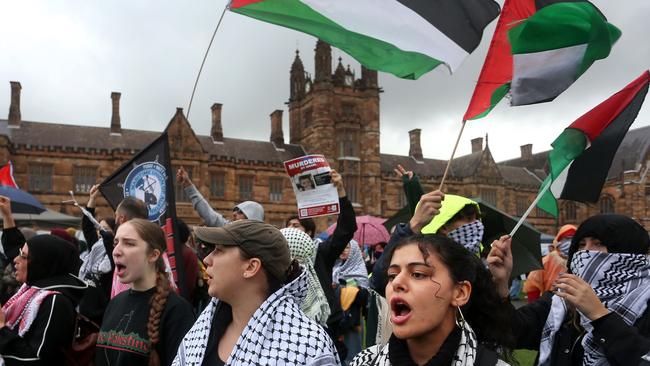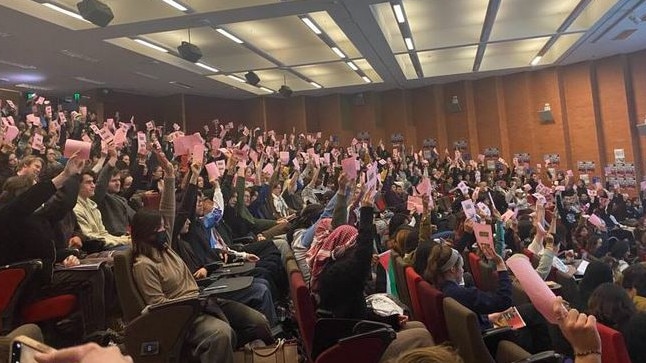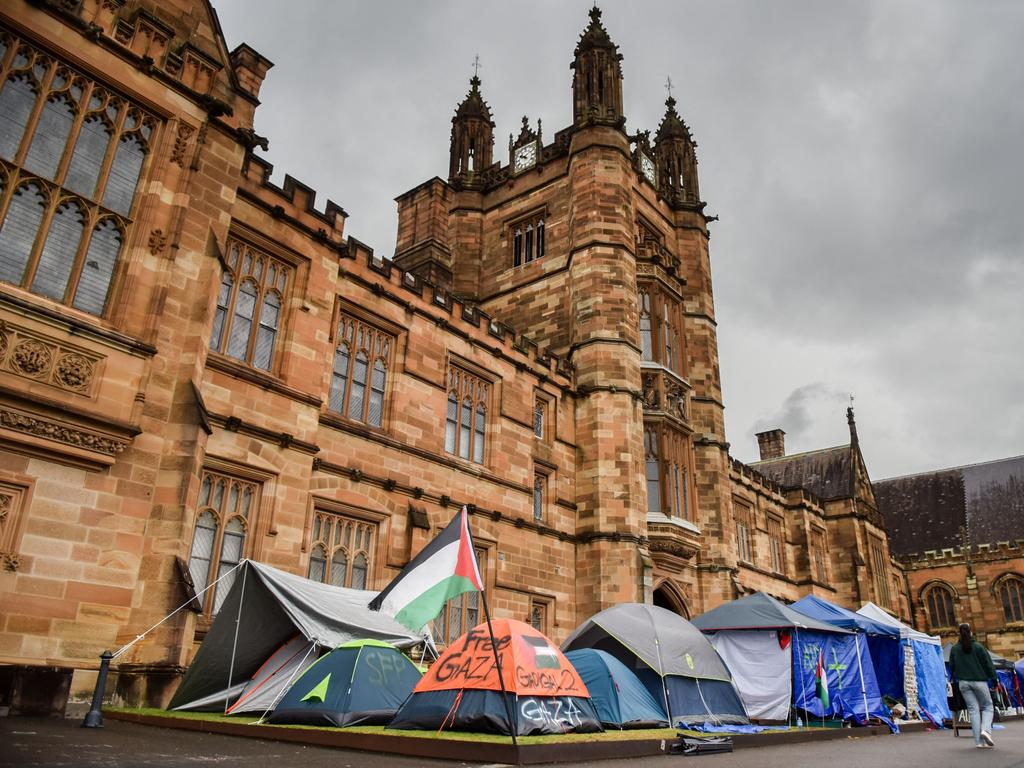Universities ‘enable, tolerance’ anti-Semitism: Campus inquiry
Jewish students say ‘many … who used to dream of going to university now dread it’ as peak Jewish bodies call for a judicial inquiry into anti-Semitism with Royal Commission-like powers.

Australia’s leading universities at times enabled or tolerated the discriminatory treatment of Jewish students and staff, Australia’s peak Jewish body says, as it and many others call for a judicial inquiry into anti-Semitism with royal commission-like powers where Jewish people can speak free from the fear of being sacked, doxxed or marked down.
The Executive Council of Australian Jewry, in its submission to the Commission of Inquiry into Anti-Semitism at Australian Universities, slammed the University of Sydney for “tolerating” terrorist statements and commentary related to a Student Representative Council meeting in which a resolution amendment calling for condemnation of Hamas atrocities was voted down by all but a handful of students.
The Zionist Federation of Australia also said its vice-chancellor, Mark Scott, had “publicly and blatantly misrepresented” what took place on his campus, and appeased those who intimidated Jewish students “to avoid further intimidation”.

Jewish students, represented by the Australasian Union of Jewish Students, said “many … who used to dream of going to university now dread it” and “felt abandoned” by their institutions amid a “normalisation of anti-Semitic discourse” on campus.
“The current situation is untenable. We are in a crisis, but we have been in crisis for far too long,” their submission said.
AUJS praised Deakin, UNSW, Australian National University and Western Sydney University for various proactive leadership measures, but criticised the University of Sydney and the University of Melbourne for their handling of anti-Semitic incidents.
The ZFA said many universities did not act in the “face of flagrant intimidation of Jews” instead “pointing to arguments of ‘free speech’ or ‘academic freedom’.”
“Universities knew about the levels of anti-Semitism on their campuses before 7 October … the complacency with which the ZFA was met before 7 October continues. The many worrying anti-Semitic incidents on campus, plus the extreme level of intimidation of Jewish staff and students, by and large have not been enough to change university positions,” it said.
Both the ECAJ and the ZFA said they did not believe an Australian Human Rights Commission’s 2025 report into racism on campus – commissioned by the government and serving as a possible alternative to an inquiry – would be adequate.
ECAJ said the Human Rights Commission’s track-record on anti-Semitism, including its “conspicuously deficient” record of public statements on the rise of anti-Semitism, was “likely to have created a perception of actual or apprehended bias that will discourage members of the Jewish community who have been impacted by anti-Semitism from coming forward”.
“At no stage has the AHRC acknowledged that there has been a disproportionate rise in anti-Semitic incidents and discourse in recent years (both in quantum and ferocity), compared with data for other types of racist incidents and discourse,” it said.
ECAJ also said in “addition to allowing development of an environment of hostile discourse, universities have at times enabled or tolerated discriminatory treatment of students and staff who identify as Jewish or Israeli.”
In its submission, the Group of Eight said anti-Semitism was a “whole of society issue” and the focus on universities left the inquiry with a “narrow scope (which) misses the opportunity to take a genuine look at the causes and drivers endangering our social cohesion”.
Senator Sarah Henderson said while the submissions to the Senate inquiry into her private senator’s bill showed the case for a judicial inquiry was “compelling” it also highlighted “the need (to) take immediate action against campus antisemitism”.
“Labor should be acting immediately to improve safety for Jewish students and staff,” she said.
“In the face of damning evidence about the systemic failings by universities, it is not tenable for Education Minister Jason Clare to sit on his hands and do nothing.”
Berowra MP Julian Leeser said the judicial inquiry needed “Royal Commission powers”.
“We’re dealing with community that has been abandoned by the institutions of this country, the Human Rights Commission, by the universities themselves, police and many political leaders. All of this underscores why a properly considered judicial inquiry with Royal Commission powers is the best way to ensure that … people can make submissions free of reprisals from malicious actors who would seek to do them harm”.






To join the conversation, please log in. Don't have an account? Register
Join the conversation, you are commenting as Logout